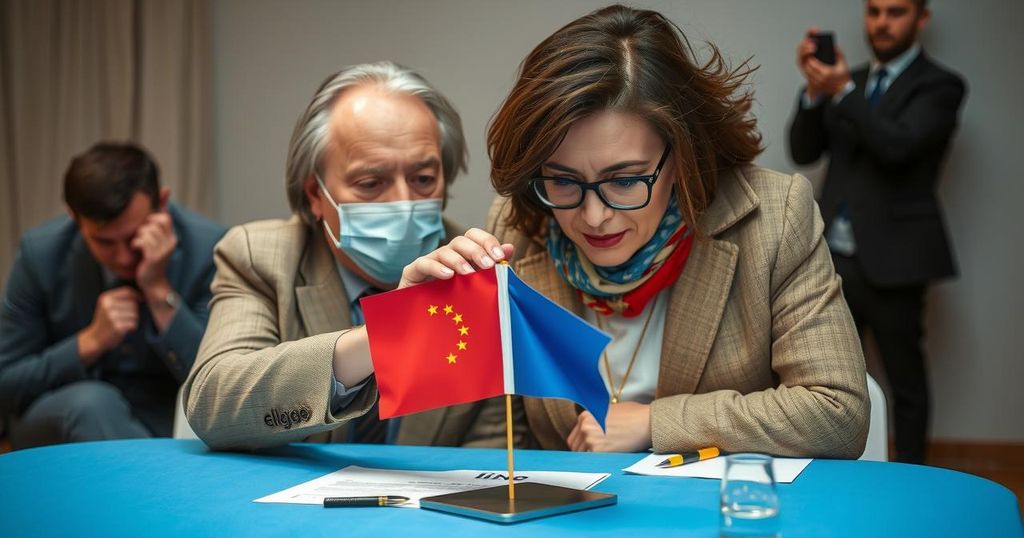Romania’s Electoral Integrity Under Siege: The Impact of Russian Interference

Romania’s presidential election saw far-right contender Calin Georgescu unexpectedly secure significant support, attributed largely to a Russian influence campaign on social media. The Constitutional Court subsequently annulled the election results due to detected interference, raising important questions regarding electoral integrity and the effective monitoring of foreign influence on democratic processes.
Romania’s recent presidential election yielded surprising results, with the far-right candidate Calin Georgescu securing the most votes in the first round, despite a lack of major party support and public profile. Reports from Romanian security services have indicated that Russian interference played a crucial role in Georgescu’s rise, utilizing a sophisticated campaign on social media platforms, particularly TikTok. Due to the detected manipulation, the Constitutional Court annulled the election results, emphasizing that the electoral process had been distorted by foreign interference.
The incident underscores a growing concern within Europe as Russian influence continues to penetrate democratic systems by promoting far-right candidates and sowing discord among voters. Romania’s situation is emblematic of the broader struggles faced by democracies in countering disinformation and foreign meddling, drawing a parallel to similar interferences witnessed in multiple countries, including in the United States and the United Kingdom.
Despite measures taken to nullify the election results, questions remain about the efficacy of redoing the vote and the underlying issues that prompted support for Georgescu. Many Romanians feel disenfranchised by existing parties, revealing a vulnerability that can be exploited by external actors. The complications surrounding foreign electoral interference highlight the necessity for robust protections against such influence, with increased regulation of social media platforms being essential in maintaining electoral integrity.
The recent presidential election in Romania drew attention due to the unexpected success of far-right candidate Calin Georgescu. Romania has been a committed member of both NATO and the European Union, yet the rise of far-right ideologies poses challenges to established democratic norms. In recent years, various countries in Europe have experienced a similar trend, boosted by Russian influence through disinformation and social media manipulation. This recurring theme of external interference raises significant concerns about the resilience of democracies in the face of foreign influence, particularly in contexts where discontent among voters exists.
In conclusion, the Romanian presidential election offers critical insights into the vulnerabilities of democracies facing external manipulation. The annulment of the election results due to Russian interference demonstrates the urgent need for enhanced regulations on social media and proactive measures to safeguard electoral processes. The complexities surrounding the support for candidates like Georgescu highlight deep-seated disillusionment among the electorate, suggesting that addressing the root causes of this sentiment is paramount in protecting democratic integrity against future threats.
Original Source: www.hawaiitribune-herald.com








